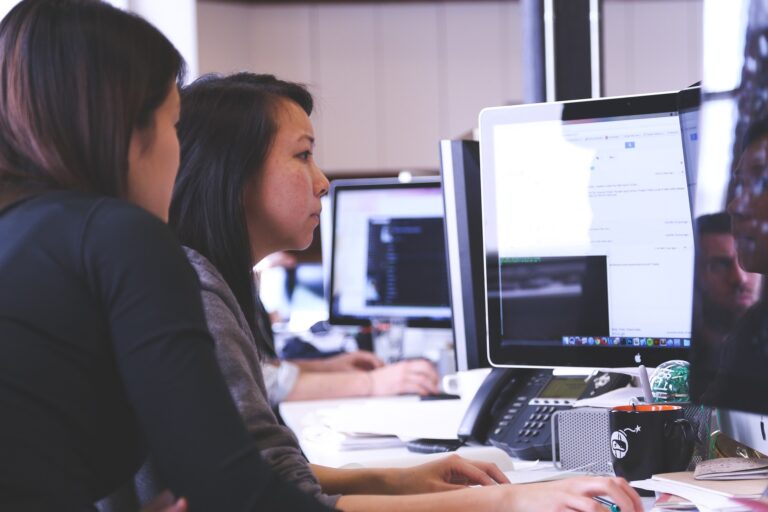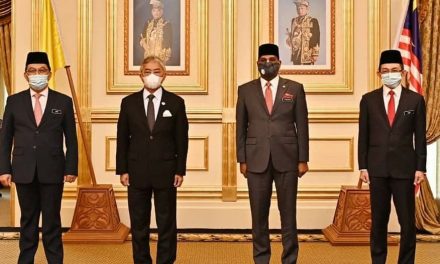- 63% of Malaysian employees are optimistic that generative AI will improve their way of working flexibly, but most underestimate the need for upskilling and reskilling.
- 39% of employees desire to quit despite the economic slowdown, with pay being the main reason.
- 52% of Malaysian employers are supportive of their employees adopting a fully remote or hybrid work arrangement.
- Generation Z and millennial Malaysian employees show a heightened awareness and acceptance of neurodiversity.
KUALA LUMPUR | More than half (63%) of employees in Malaysia (global 48%) anticipate that generative artificial intelligence (GenAI) will improve their way of working flexibly, while 70% (global 49%) of them noted that they are either currently using or planning to use GenAI in the next 12 months, according to the EY 2023 Work Reimagined Survey.
While GenAI potential is still being realized, there is growing momentum and a generally positive outlook on how the technology will impact new ways of working. Malaysian employers, too, mirror these sentiments, with 84% (global 67%) expecting GenAI to enhance working flexibly with 96% (global 84%) either currently using or planning to use the technology within the next year.
However, despite both employees and employers ranking learning and skills as the number one factor to ensure employees thrive in new ways of working, only 22% of Malaysia employers (global 22%) plan to provide training on GenAI-related skills.
This is according to the EY 2023 Work Reimagined Survey, fourth in the series, which canvassed the views of 17,050 employees and 1,575 employers across 22 countries and 25 industry sectors globally. These include 250 employees and 50 employers from Malaysia.
Low Choy Huat, EY Asean People Advisory Services Leader and Partner, Ernst & Young Consulting Sdn Bhd, said: “It is encouraging to witness the increasing awareness among Malaysian employees and employers on the potential benefits of using GenAI in the workplace. While there is an intention among employers to incorporate GenAI in the near future, there is a substantial gap in upskilling and reskilling the workforce in the technology. It is imperative to accelerate the training of essential skills to build Gen AI capabilities, while fostering the ethical and responsible use of it in the workforce.”
Employees are set to quit their jobs despite the economic slowdown
Over a third (39%) of employees in Malaysia (global 34%) are likely to quit their jobs in the next 12 months; with better overall wellbeing programs, greater flexibility for remote work and more competitive salary packages elsewhere as top reasons for leaving. Pay remains the main concern of Malaysian employees (Malaysia 40%, global 36%), followed by an employer’s ability to attract new talent, (Malaysia 28%, global 25%) as well as workplace flexibility (Malaysia 28%, global 25%).
Employers in Malaysia also prioritize pay (Malaysia 34%, global 31%), the retention of talent (Malaysia 34%, global 32%) and workplace flexibility (Malaysia 32%, global 29%) as key talent concerns. This highlights that employees and employers in Malaysia are aligned on what matters most to them.
The survey also finds a disconnect between employee and employer expectations in Malaysia. Almost two-thirds of employers (Malaysia 64%, global 57%) believe that the slower national economic growth reduces the likelihood of employees to quit. However, only 57% of Malaysian employees (global 47%) agree, leaving employers at risk of underestimating the continued fluidity of the labor market.
Low said: “Despite the ongoing economic challenges, over a third of Malaysian workers are actively considering transitions to workplaces that offer enhanced well-being initiatives aligning with their post-pandemic aspirations and adjusting to the rising cost of living. To safeguard the essential workforce, employers must proactively address the evolving expectations and priorities of their workforce to not only attract and retain top talent but also foster a resilient workforce in the face of ongoing economic challenges.”
While new patterns of work have emerged as a result of the COVID-19 pandemic, when it comes to balance of power in the workplace, respondents in Malaysia view employers as still having more influence and control than employees over issues like rewards, retention and ways of working. Prior to the pandemic, 53% Malaysian respondents (global 54%) agreed that balance of power in the workplace was in the employers’ favor. This dipped to 43% in 2022 (global 44%), and rose again to 53% currently (global 45%), revealing that respondents in Malaysia believe employers have about the same level of influence in the workplace today as before the pandemic.
Preference for flexibility in work arrangements
With regard to work flexibility, the survey found that about half (52%) of Malaysian employers (global 47%) are supportive of their employees adopting a two-to-three-day remote work arrangement, providing them the flexibility to work from home on some days and in the office on other days.
This is good news for knowledge workers, whose work is based primarily analysis or subject expertise in a professional office setting. Flexibility is now a baseline expectation, with only 5% of Malaysian knowledge workers (global 7%) willing to work solely in the office. These knowledge workers are pulled toward in-office engagements that are centered around collaborating with colleagues (Malaysia 40%, global 30%), building and maintaining relationships (Malaysia 36%, global 29%) and staying socially connected (Malaysia 34%, global 37%).
Workplace amenities and space design do not move the needle when it comes to the employees’ desire to go to the office. However, the survey finds that investment in high-quality real estate is positively correlated with a range of other workforce outcomes including better operational support for flexible work arrangements, productivity and retention.
Low says: “Malaysian employers embracing a hybrid work approach is a positive trend in the landscape of post-pandemic work. Despite the increased prevalence of remote work, there remains a strong demand for in-person interactions to foster teamwork, professional relationships and social bonds. Recognizing this, employers should aim to create balanced and fulfilling work environments that accommodate both remote flexibility and essential in-office connections.”
Another disconnect between employee and employer perspectives is the gap between their optimism on leadership alignment on new ways of working. Eighty two percent (82%) of Malaysian employers (global 74%) agree managers and leadership are aligned on areas like work schedules, time off and remote and hybrid work, but only 62% of employees (global 55%) agree.
Nevertheless, a silver lining exists for organizations that demonstrate qualities of empathetic leadership. More than half of employees in Malaysia trust and feel supported by their employers (Malaysia 63%, global 54%), and agree they are well-informed about changes in the organization like new policies and benefits (Malaysia 61%, global 56%). These observations signal there is a strong opportunity to bridge the divide.
Greater awareness on neurodiversity at the workplace
In another observation, there is also a growing awareness of neurodiversity, particularly among generation Z and millennials in the workplace. The survey reveals that 9% of Malaysian respondents identify as neurodivergent (global 19%), with 77% falling into these age groups (global 66%). Leveraging on the unique traits of neurodivergent individuals, such as pattern recognition, deep focus, problem-solving, attention to detail, and creativity is proving invaluable, especially in meeting the increasing demand for digital skills like artificial intelligence, data analytics, blockchain, cloud and cybersecurity.
Low says: “Embracing neurodiversity not only harnesses an untapped talent pool of the neurodiverse population for navigating the evolving digital landscape; but also enables companies to champion inclusivity by extending its definition and integrating the concept into the diversity, equity and inclusion (DE&I) initiatives in the workplace”.








